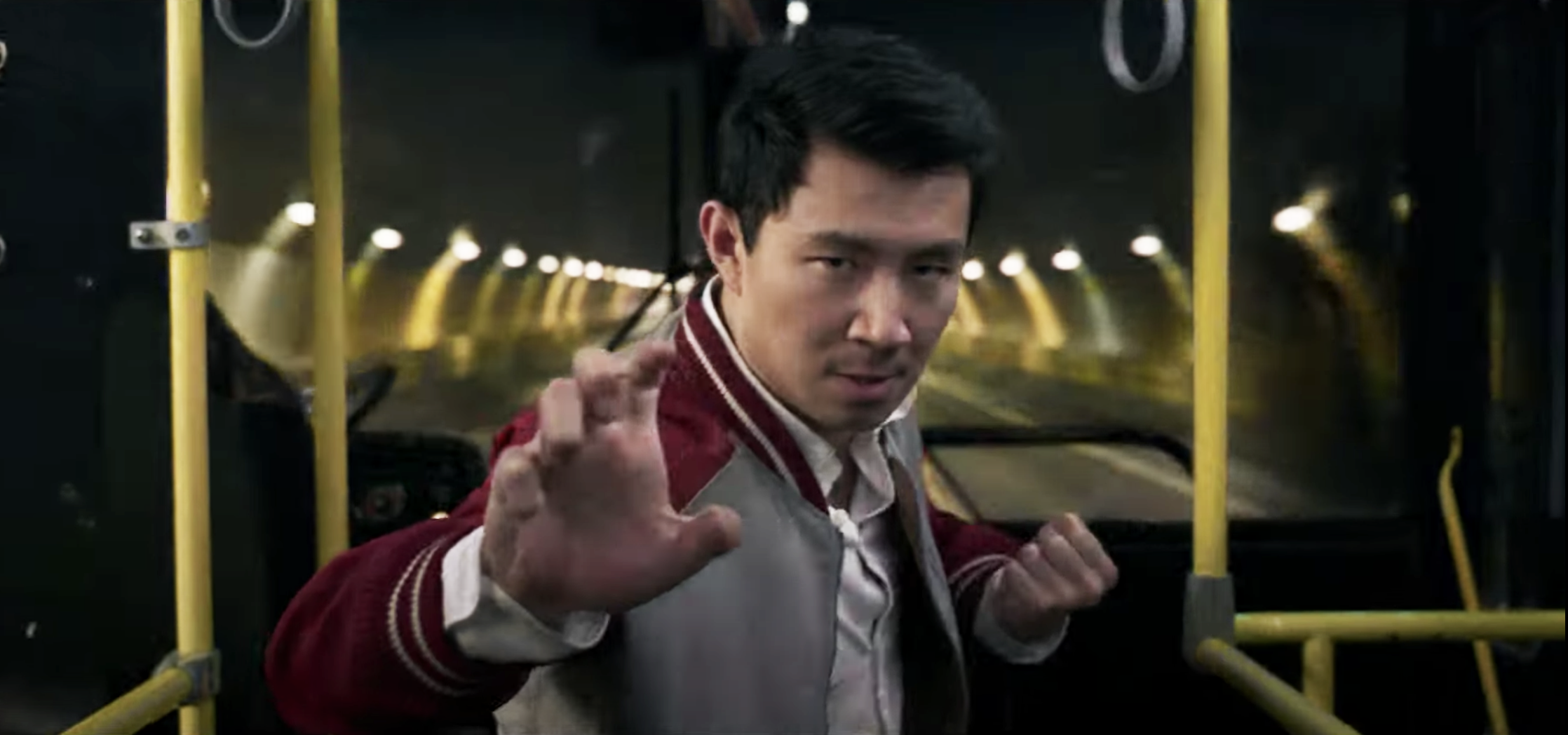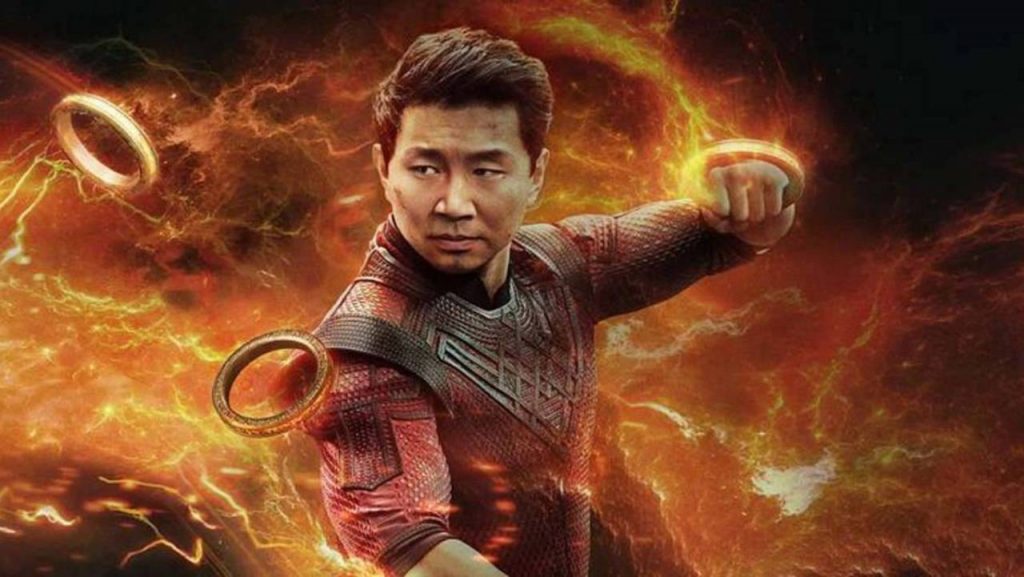
In a cinematic universe overflowing with spies, robots, aliens, and super-soldiers, it’s refreshing to know that there’s plenty of room for more fantasy. Shang-Chi feels like a pleasant addition to the unstoppable machine that is the MCU. It’s a film that won’t exactly push these films into a new realm or genre, given that this isn’t the first or last film we will have seen with fantasy creatures, fantastic powers, and rich with lore. It may be the first that has stunning martial arts that feels competent, clever, and exciting. It’s certainly the first all-Asian cast to show off how the MCU is expanding for more diverse voices, a quintessential aspect to ensuring a franchise has some life after 20+ films spanning over a decade.
Director Destin Daniel Cretton has more than enough cunning to weave this tale of fantasy weapons. Despite the presence of a prologue, explaining how the power of the mysterious rings has led to a shadow organization spanning centuries, the story itself is presented in a brisk manner. We get the bare bones about how Shang-Chi (Simu Liu) is the son of the ring’s owner, the power-hungry Wenwu (Tony Leung), and has a life he has tried to hide. Working as a valet with his best friend Katy (Awkwafina), he prefers a life of get-togethers, drinks, and karaoke. Of course, there’s only so long he can evade his powerful dad.
After an exciting fight on an out-of-control bus, a confounded Katy demands that Shang-Chi come clean and his history is slowly revealed on his journey to protect his family. We learn that he was raised to be a warrior by his father who trained him in martial arts. We’re made aware of his estranged sister, Xialing (Meng’er Zhang), has become a dominant leader in an underground fighting organization.
But what’s perhaps most pressing is that Wenwu, bound by the loss of his mystical wife Jiang Li (Fala Chen), has become obsessed with a way to bring her back. His methods involve tapping into a portal that, if opened, will bring forth great evils into this world.
This focus on being haunted by the past is presented in such a meaningful way, especially with the non-linear format that slowly reveals Wenwu’s troubled life when handling death and power. He’s a sympathetic villain but also one that has become hardened by pushing others away while handling grief. His favoring of the mystical ten rings, with their power to shoot energy as weapons and for flight, corrupts his worldview that was once peaceful when surrounded by his family.
At the same time, Shang-Chi and Xialing also have conflicts with childhoods they would rather forget. Having known their father post-wife as either a strict trainer of martial arts or a coldly neglecting father, the siblings would rather place that part of their lives behind them. Yet they can only move on and grow if they address this part of their life, lest they turn just as hardened.
For a film that features magic rings, swords for arms, and a slew of magical creatures, it was surprising just how subdued such a picture becomes in its storytelling that leans heavier into its Chinese lore with earnest drama. With the exception of Doctor Strange’s Wong (Benedict Wong) and one other unimposing cameo, this film stands firmly enough on its own ground to not be dependent on other Marvel movies.
It really feels like a world all its own with a legacy of magic and realms that need not be complicated by the bustling world of superheroes. Even the legend behind the rings is kept refreshingly simple so that such a film keeps its aim on the thematic elements rather than the arbitrary nature of the mechanics of mystical rings.
The action scenes are by far a highlight but more so for the first act. It’s hard to top a scene where Sam Liu performs exciting kicks and punches on multiple hitmen aboard a runaway bus with hostages while keeping his jacket looking so good. The climax of ancient warriors doing battle against otherworldly creatures who eat souls is a special showcase, for sure, and thankfully keeps the family angle more present than lost in a smattering of CGI.
But you can’t quite beat good old-fashioned martial arts, even if the aforementioned bus fight requires a black knight such as Razor Fist, a self-explanatory hitman. The only thing that can top it is a daring battle of assassins amid a Chinese high-rise, complete with a flashy showdown amid colorful billboards and shattered glass.
There’s a genuine nature to make Shang-Chi one of the more robust Marvel solo films of the cinematic universe, bursting with fantasy and action that feels more exciting than standard. Embracing more than just the standard superhero staging with a martial arts motif, it’s a film that manages to be meaningful without being melodramatic and charming without being desperate for a laugh.
Even the presence of the always-hilarious Awkwafina is treated less like comic relief and more as a character with a meaningful arc as Shang-Chi’s friend trying to prove herself. Heck, even the surprise cameo that seems even more present for laughs is used to such a sparing nature he avoids becoming an off-beat diversion.
There’s a brilliant balance of both a human and fantastical story, rarely going overboard with its special effects and mindful humor. Although the assessment of handling Wenwu being The Mandarin is handled with an equal mix of cleverness and absurdity.
It’s a bit disheartening that Marvel and Disney are considering Shang-Chi an experiment. Such a strong film shouldn’t be bound by box office alone considering that this is easily one of the most meaningful and enthralling of recent entries in the MCU. There’s more than enough imagination to be wondrous, intricate fight choreography to be engaging, and unique characters to be deeply human.

 “Deadpool & Wolverine” Review
“Deadpool & Wolverine” Review  “The Boys: Season Four” Review
“The Boys: Season Four” Review  “The American Society of Magical Negroes” Review
“The American Society of Magical Negroes” Review  “Twisters” Review
“Twisters” Review  “Sausage Party: Foodtopia” Review
“Sausage Party: Foodtopia” Review  “Robot Dreams” Review
“Robot Dreams” Review  “Godzilla x Kong: The New Empire” Review
“Godzilla x Kong: The New Empire” Review  “Slave Play. Not a Movie. A Play.” Review
“Slave Play. Not a Movie. A Play.” Review 



